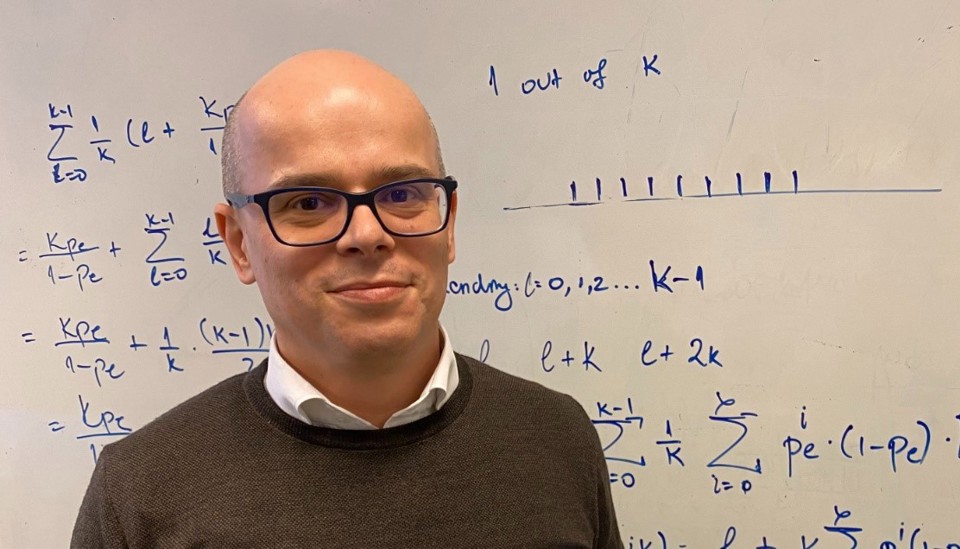− The relationship between family life and work life is very good in Denmark because you can actually have both. But my university work of course doesn't end at 4 p.m. I work all the time. I can't remember a day when I didn’t check email at least ten times, says Professor Petar Popovski.
His 24/7 approach to research is partly due to the fact that he works with researchers around the world who are not necessarily at work 8 a.m. to 4 p.m. Danish time. But it is also due to his fervent interest in his area – communication technology.
MOBILE COMMUNICATION AND AAU
In his native Macedonia, Petar Popovski began his academic career with a Master's degree in electronics and communication. After weighing his options as to where to continue his career, in 2001 he and his wife packed their suitcases and went to Denmark where he had been offered a position to do a PhD in wireless communication.
− At the time, mobile communication was very popular. And Aalborg University was one of the places in the world where you went to get a PhD in the field, says Petar Popovski.
The plan was to travel further, perhaps to the United States, after the three years of PhD study. With his PhD in hand, Petar Popovski was offered positions at several universities, including one at AAU, and, as he says, it was a good place, both in terms of family and academic environment. Today, almost 20 years later, he and his wife have had a boy and a girl, and they still live in Denmark where they both work at AAU – she as an associate professor at the Department of Materials and Production, he as professor at the Department of Electronic Systems where he heads the Connectivity research group dealing with communication theory and communication technology.
MUSIC, RUNNING AND AUDIOBOOKS
Although Petar is, in his own words, almost one with his research, he also makes time to be with his family. And then he plays jazz – guitar and piano – and he runs. Almost every day.
On his runs, he listens to audiobooks, such as Peter Høeg or Haruki Murakami, but it is not only novels flowing through the headphones as he whizzes around the streets and parks of Aalborg.
− I listen to nonfiction just as often, but never from my own field. For example, I love books on psychology and economics. It's a great way to relax.
He is fond of Denmark, but like many international people here, he finds it difficult to connect with Danes:
− It’s not impossible, but generally difficult to have a large circle of friends if you come from abroad. Danes tend to make friends with Jens and Mette in kindergarten and primary school, and that’s that.
COMMUNICATION TECHNOLOGY IS AN INTEGRAL PART OF EVERYDAY LIFE
In the Connectivity research group, Petar Popovski and his colleagues devise and develop new communication concepts, and they develop the theory behind the concepts. They deal with particularly topical areas such as 5G, Internet of Things (IoT), blockchain and the systems that come after 5G.
